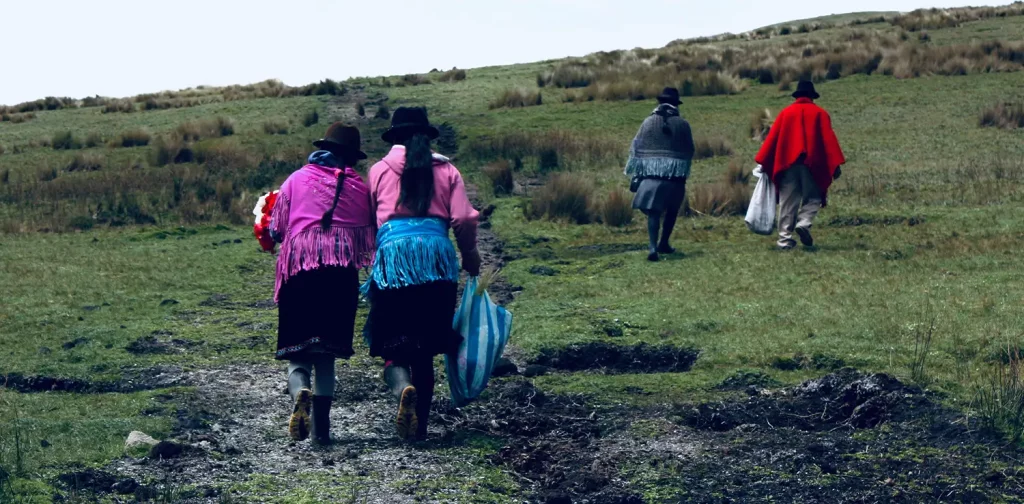Putting Indigenous Peoples at the Forefront of Natural Preservation

Photo by Azzedine Rouichi on Unsplash.
The earth is getting warmer, and we are witnessing the changes. From melting glaciers to sinking cities, the impacts of climate change are undeniable and unequal. For Indigenous communities heavily dependent on nature, the effects are borderline disastrous.
The stewards of nature
Nature plays a significant role in the lives of Indigenous Peoples. Their identities, cultures, spirituality, and well-being are closely tied to the lands they live in. Despite only making up about 6% of the world’s population, Indigenous Peoples are protecting almost 80% of the earth’s biodiversity and ecosystems, therefore possessing invaluable knowledge regarding natural preservation.
However, Indigenous Peoples are still experiencing a lack of support and recognition to a varying degree. In fact, for such a small population, Indigenous Peoples account for 19% of the poor population. Furthermore, many still have to live in fear of land evictions despite being historically tied to their homelands. The COVID-19 pandemic and climate change also recently uncovered the vulnerability of these communities against disasters.
Funds and solutions for Indigenous Peoples
Indigenous Peoples are the core caretaker of nature. Therefore, placing them at the center of sustainable development actions is necessary. Last year, the Glasgow COP26 pledged to allocate $1.7 billion between 2021 and 2025 to support and protect the rights of Indigenous Peoples. The fund is endorsed by the governments of Germany, the Netherlands, Norway, the UK, and the US, along with 17 philanthropic foundations in the efforts to recognize the role of Indigenous Peoples as the guardians of the forests and nature.
The funds will be directed into two main things:
- Supporting Indigenous Peoples and local communities through capacity building, financial support for group activities, collective governance structures and management systems, and sustainable livelihoods.
- Securing, strengthening, and protecting Indigenous Peoples’ and local communities’ land and resource rights, starting from the mapping process, registration works, reform process and its implementation, to conflict resolution mechanisms.
Meanwhile, The Global Alliance of Territorial Communities also highlights the importance of Indigenous Peoples through nature and community-based solutions. This framework takes the nature-based solutions further by recognizing and centering the role of Indigenous communities as the forefront protectors of the forests. The alliance consists of Indigenous communities in Latin America, Africa, and Asia striving for the rights and participation of Indigenous Peoples in the decision-making process on climate change and biodiversity.
Our collective fights
Our fight for sustainability doesn’t exist in a vacuum. It should be inclusive enough that every community can contribute its own ways to realize our collective goal of sustainability for people and the plane. Recognizing and understanding the voices of vulnerable groups such as Indigenous Peoples is an act of empowerment in itself; it’s a way of reaffirming our collective responsibilities toward creating a place where no one is left behind.
Editor: Nazalea Kusuma

Co-create positive impact for people and the planet.
Amidst today’s increasingly complex global challenges, equipping yourself, team, and communities with interdisciplinary and cross-sectoral insights on sustainability-related issues and sustainable development is no longer optional — it is a strategic necessity to stay ahead and stay relevant.

Kresentia Madina
Madina is the Assistant Manager of Stakeholder Engagement at Green Network Asia. She holds a bachelor’s degree in English Studies from Universitas Indonesia. As part of the GNA In-House Team, she supports the organization's multi-stakeholder engagement across international organizations, governments, businesses, civil society, and grassroots communities through digital publications, events, capacity building, and research.


 Reframing Governance in the Era of Water Bankruptcy
Reframing Governance in the Era of Water Bankruptcy  Strengthening Resilience amid Growing Dependence on Space Infrastructure
Strengthening Resilience amid Growing Dependence on Space Infrastructure  Indian Gig Workers Push Back Against 10-Minute Delivery Service Strain
Indian Gig Workers Push Back Against 10-Minute Delivery Service Strain  Call for Governance: Grassroots Initiatives Look to Scale Efforts to Conserve Depleting Groundwater
Call for Governance: Grassroots Initiatives Look to Scale Efforts to Conserve Depleting Groundwater  Integrating Environment, Climate Change, and Sustainability Issues into Education Systems
Integrating Environment, Climate Change, and Sustainability Issues into Education Systems  Finally Enforced: Understanding the UN High Seas Treaty
Finally Enforced: Understanding the UN High Seas Treaty